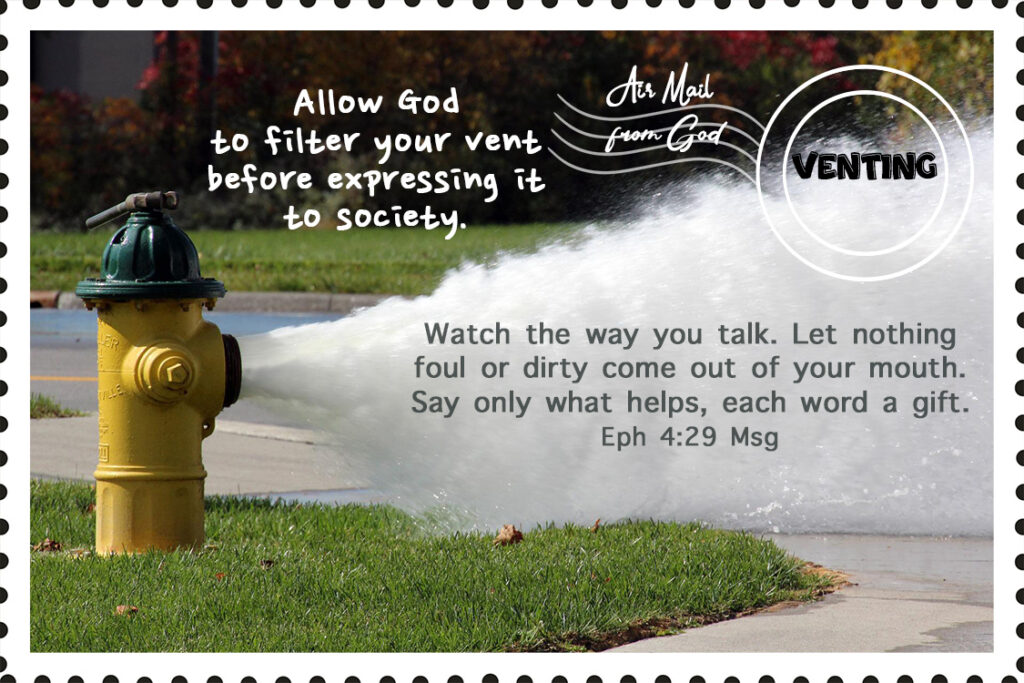“In your anger do not sin”: Do not let the sun go down while you are still angry, and do not give the devil a foothold. Eph 4:26,27
What is the best way to vent anger promptly and without sinning? The imprecatory Psalms gives us the answer. The meaning of imprecate—is to invoke judgment, calamity or curses upon one’s enemies or those perceived as the enemies of God. The Bible gives us examples of this kind of venting. Two major imprecatory psalms are: Ps 69, Ps 109. Other psalms include imprecatory thoughts.
Ps 5,6,11,12,35,37,40,52,54,56,57,58,59,79,83,94,137,139 and 143.
Happy is the one who seizes your infants and dashes them against the rocks. Ps 137:9
The psalmist has been exiled to Babylonia and is being mocked by his captors to sing songs of joy Ps 137:3. He dearly misses Jerusalem Ps 37:5 and mourns the destruction caused by his enemies Ps 137:7. He vents his pain, asking God to repay evil for evil Ps 137:8. Then, all of his emotions are exposed with his statement, “happy is the one who seizes the Babylonian infants and dashes then against the rocks.” He is quoting from Isa 13:16 where God prophesied that Babylonia would fall under judgment and their infants would be dashed to pieces. It is like someone in our day saying, I’m glad that Hitler will burn in hell for his atrocities Rev 20:15.
Many of the psalms are characteristic of David’s Ps 22, where he vents his frustrations at God for not answering his prayer for deliverance Ps 22:1,2. But after all the venting, calmness and sensibility returns, and he once again beseeches God for protection Ps 22:11. David then ends his rant by acknowledging that God is mighty and worthy of his praise Ps 22:25,28.
This venting to God accomplishes a few important things. It provides an intimate conversation with God while releasing our frustrations to the One who can change circumstances and irrational thinking. More importantly God directs us to express our frustrations to society in a positive way. We were created in the image of God Gen 1:27, with the ability to create like God through many different mediums such as music, art, literature, and drama, just to name a few. Rather than using hurtful and hateful rhetoric, Jesus educated us to God’s standard. He explained that the interpretation by some teachers of the Law in the past was to hate their enemy, and under the Law, an eye was required for an eye Ex 21:24, but Jesus corrected this thinking by teaching us a better way, in which we were to love our enemies Lk 6:27 and turn the other cheek Mt 5:39 to avoid escalating conflicts.
When Horatio Spafford in 1873 lost his daughters in a tragic accident at sea, he used his pain for good, by writing “It is Well with My Soul,” to encourage believers to continue to trust God, even in their grieving, darkest moments.
Candace Lightner vented her rage in constructive ways, after her daughter Cari was killed by a drunk driver in 1980, forming the national organization Mothers Against Drunk Driving (MADD) to help curb the number of alcohol-related accidents.
So, God wants us to handle our anger without sinning, in a civil, timely way. The best method is to call on God and to be transparent with your feelings, then after you have vented the frustration out, turn to truth and seek God’s positive method to share with the world.

